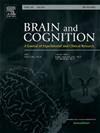Semantic predictability and semantic relevance through different neural mechanisms to improve memory performance
IF 1.4
3区 心理学
Q3 NEUROSCIENCES
引用次数: 0
Abstract
Previous studies have shown that semantic predictability and semantic relevance enhance the semantic activation of target words and improve memory performance. However, it is unclear whether semantic predictability and semantic relevance affect memory performance through the same neural mechanisms. The present study examined how semantic processing of semantic predictability and semantic relevance during encoding affects episodic memory retrieval. In our experiments (Experiment 1: item recognition; Experiment 2: associative recognition), we compared behavioral and EEG indicators across true (predictable), invalid (unpredictable but semantically relevant), and anomalous (unpredictable and semantically irrelevant) conditions. In both experiments, memory performance was best in the true condition. In Experiment 1, the old/new effect of FN400 was observed in the invalid condition, while the old/new effect of LPC was observed in the true condition. In Experiment 2, the old/new effects of FN400 and LPC were observed in the invalid condition. In the true condition, only the old/new effect of LPC was observed. These results suggest that semantic predictability and semantic relevance influence FN400 and LPC in different ways. These findings demonstrate that there are differences between semantic predictability and semantic relevance in retrieving information.
语义可预测性和语义相关性通过不同的神经机制提高记忆性能
已有研究表明,语义可预测性和语义关联增强了目标词的语义激活,提高了记忆性能。然而,语义可预测性和语义相关性是否通过相同的神经机制影响记忆性能尚不清楚。本研究考察了编码过程中语义可预见性和语义相关性的语义加工对情景记忆提取的影响。在我们的实验中(实验1:项目识别;实验2:联想识别),我们比较了真实(可预测),无效(不可预测但语义相关)和异常(不可预测和语义无关)条件下的行为和EEG指标。在两个实验中,真实条件下的记忆表现最好。实验1在无效条件下观察FN400的新旧效应,在真实条件下观察LPC的新旧效应。实验2在无效条件下观察FN400和LPC的新旧效应。在真实条件下,只观察到LPC的新旧效应。这些结果表明,语义可预测性和语义相关性以不同的方式影响FN400和LPC。这些研究结果表明,语义可预测性和语义相关性在信息检索中存在差异。
本文章由计算机程序翻译,如有差异,请以英文原文为准。
求助全文
约1分钟内获得全文
求助全文
来源期刊

Brain and Cognition
医学-神经科学
CiteScore
4.60
自引率
0.00%
发文量
46
审稿时长
6 months
期刊介绍:
Brain and Cognition is a forum for the integration of the neurosciences and cognitive sciences. B&C publishes peer-reviewed research articles, theoretical papers, case histories that address important theoretical issues, and historical articles into the interaction between cognitive function and brain processes. The focus is on rigorous studies of an empirical or theoretical nature and which make an original contribution to our knowledge about the involvement of the nervous system in cognition. Coverage includes, but is not limited to memory, learning, emotion, perception, movement, music or praxis in relationship to brain structure or function. Published articles will typically address issues relating some aspect of cognitive function to its neurological substrates with clear theoretical import, formulating new hypotheses or refuting previously established hypotheses. Clinical papers are welcome if they raise issues of theoretical importance or concern and shed light on the interaction between brain function and cognitive function. We welcome review articles that clearly contribute a new perspective or integration, beyond summarizing the literature in the field; authors of review articles should make explicit where the contribution lies. We also welcome proposals for special issues on aspects of the relation between cognition and the structure and function of the nervous system. Such proposals can be made directly to the Editor-in-Chief from individuals interested in being guest editors for such collections.
 求助内容:
求助内容: 应助结果提醒方式:
应助结果提醒方式:


